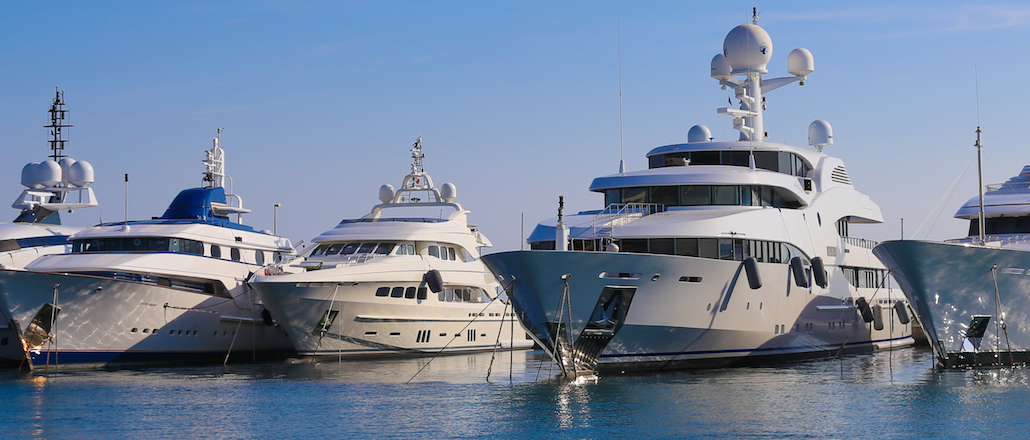Last chance to save on Digiday Publishing Summit passes is February 9

Mark Duffy has written the Copyranter blog for 10 years and is a freelancing copywriter with 20-plus years of experience. His hockey wrist shot is better than yours. Follow him on Twitter.

The Cannes International Festival of “Creativity” (formerly, “Advertising,” now a dirty word) has become an enormous Human Centipede, except these agency bigwigs don’t need to have their mouths surgically attached to each other’s rear ends. It’s simply the reason they’re here (hey, when in France).
But the ass-kissing networking isn’t the reason why Cannes should end. Not at all. This social element of the festival has become very valuable.
What needs to be killed is the awards part of Cannes, right now, this year. There are two main reasons why.
The festival has become a complete charade, full of scam ad entries.
Sure there have always been fake ads, but not nearly as many as now, in the digital age. An ad/video posted anywhere — some obscure Facebook page, one telephone pole — is a “real” ad.
Pre-Internet, agencies just entered scam ads behind their clients’ backs. How scandalous! But that’s nothing compared to what’s happened in recent years. Now, the clients are actually colluding with the agencies, giving their blessing for shops to enter ads that never ran, ads that they may have liked, but never signed off on or paid for.
Why? Lion-winning ads get thousands — even millions — of dollars of free media placement on both trade and, more important, consumer websites. Ain’t that something.
Last June, McDonald’s and Panasonic and their agencies repeatedly refused to answer a reporter’s simple question about where exactly their Lion-winning print campaigns ran.
Isolated incidents, you say? Like any exterminator will tell, if you see a couple of cockroaches, that means there’re hundreds under the floorboards.
Last summer, BBH founder John Hegarty blasted the trend of increased acceptance of scam ads at Cannes:
“It is a delusional practice, and the problem is we’ve created a beast called awards and it’s taken over. What Cannes should be about is how creativity aids branding and builds business.”
Jose Miguel Sokoloff, Lowe’s global chief creative officer, countered Hegarty’s argument thusly:
“I have to disagree with John. I agree that there is a lot of work created just for awards but think of it like a Formula 1 operation. Honda has a F1 programme just to win races. But also what they learn from testing becomes part of the car’s engine.”
That’s some desperate metaphor-groping right there. Why don’t we also give Pulitzers to books that were never published or Oscars to films that haven’t been filmed yet? Civilians already view us advertising people as a bunch of scumbag liars, so, yes, let’s make our reputation even worse.
What makes this pathetic behavior an issue is that the Top Right Group (the U.K. media company that owns and runs the festival) holds Cannes up as the bastion of creative integrity, the only ad-awards show that matters. And the industry “luminaries” in attendance treat it as a very solemnly serious creative event.
The entry fees are criminally expensive, plus you have to pay another €6,800 ($7710) just to attend the full nine-day event (that figure includes nothing extra). Last year, the festival made over $28 million in entry fees alone. This year, it has received the highest number of entries ever.
One can then pretty safely surmise that the Top Right Group has zero interest in conducting even cursory background checks of the entries. Shouldn’t Adweek or Ad Age, then, do some digging into entry authenticity? Ha, no, they’re just along for the positive-vibe, pageviews ride.
That leaves it up to the drunk, vacationing bigwig judges. The judging rules do not require them to weed out scam ads, and why would they? They (or at least agencies in their mega-merged networks) certainly have several fake ads entered in the festival. Which brings us to the second reason the awards program needs to be axed.
The kindergarten-level pettiness of the judges.
Most of them work at an agency owned by one of the three mega-merged ad groups: Publicis, Omnicom or WPP. Back in 2012, WPP chairman Martin Sorrell accused Omnicom of so-called “block voting” — that panel judges who worked at one the group’s agencies colluded to vote for their group’s work and to kill all other entries.
Amir Kassaei, worldwide chief creative officer at DDB (an Omnicom agency), responded with an equally mature — and I am only paraphrasing here — “Nuh-uh, you dirty jerks block voted.”
For their part, Cannes officials now say they have an “algorithm” to detect cheat voting. Sure, sure, that’ll work perfectly.
Again, what makes this pettiness an issue is that business is won and lost over Lion totals, and Lions can make or break a creative’s career.
If they’re that important to you big babies, just buy your own collection and engrave them yourselves: A Gold goes for €1135 ($1286); a Grand Prix will run you €2575 ($2920). Who’s to know the difference?

Banner image courtesy of Semmick Photo / Shutterstock.com
More in Marketing

In Q1, marketers pivot to spending backed by AI and measurement
Q1 budget shifts reflect marketers’ growing focus on data, AI, measurement and where branding actually pays off.

GLP-1 draws pharma advertisers to double down on the Super Bowl
Could this be the last year Novo Nordisk, Boehringer Ingelheim, Hims & Hers, Novartis, Ro, and Lilly all run spots during the Big Game?

How food and beverage giants like Ritz and Diageo are showing up for the Super Bowl this year
Food and beverage executives say a Super Bowl campaign sets the tone for the year.





